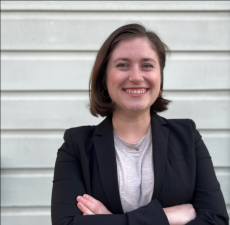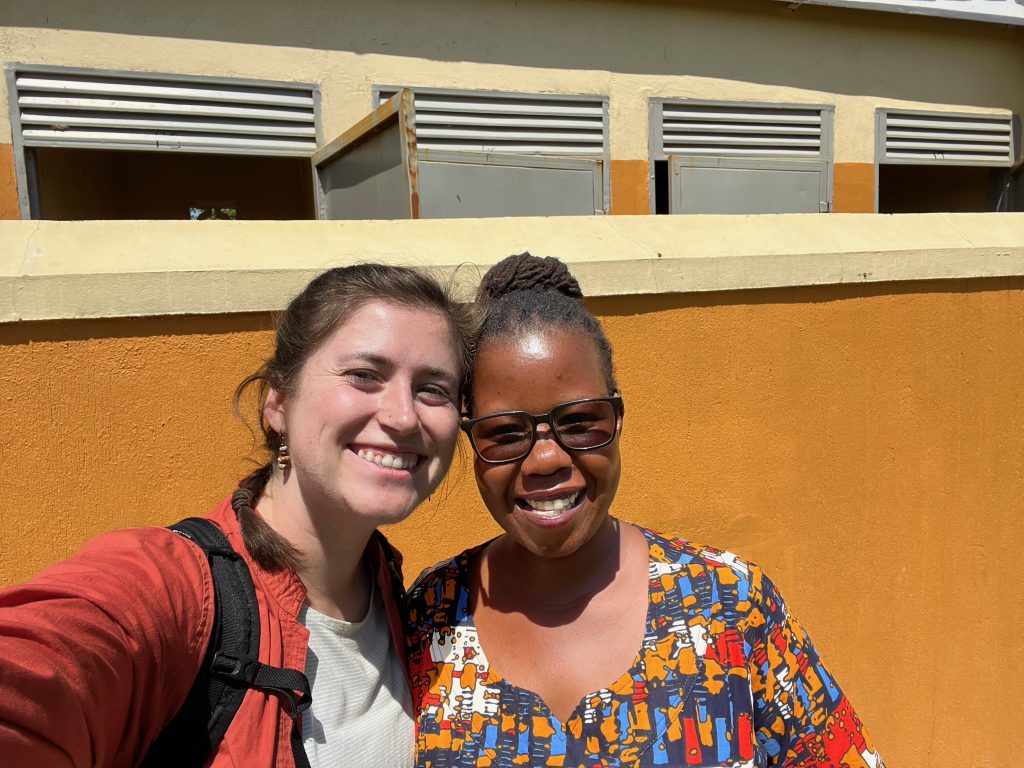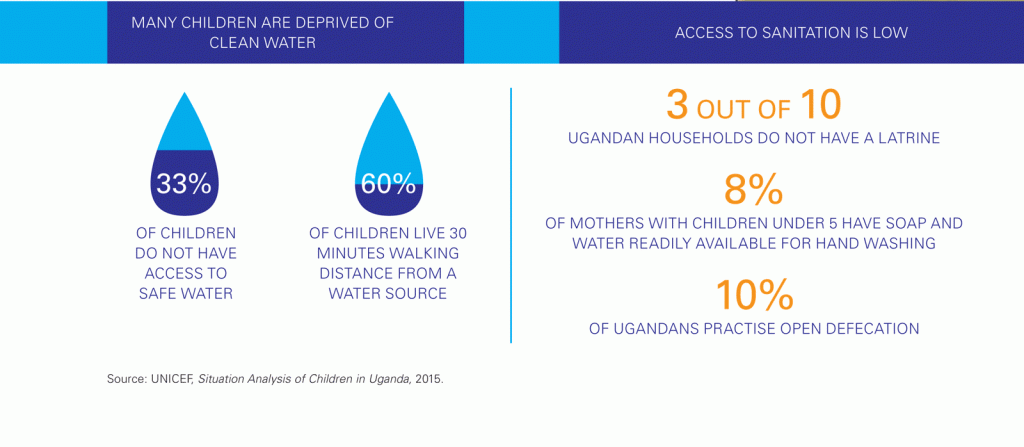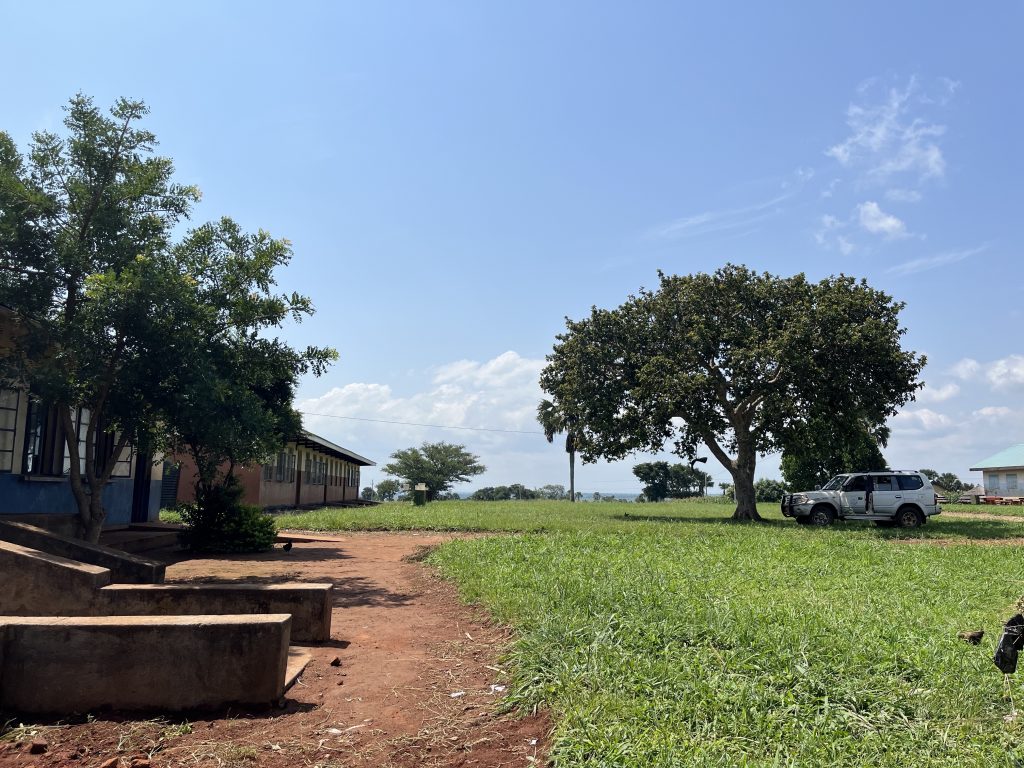We have kicked-off the core effort that will be completed during my fellowship here: the water, sanitation, and hygiene (WASH) project at Kulu Opal Primary School. GDPU has built latrine stances at 6 schools since 2016 with the support of the Advocacy Project and their Peace Fellows. You can read more about the projects through Peace Fellows’ blogs, following toilet construction at Tochi (Josh Levy, 2015), Ogul (Lauren Halloran, 2017), Awach Central (Chris Markomanolakis, 2018), Abaka (Spencer Caldwell, 2019), Awach Primary (Kyle Aloof, 2022), and Panykworo (2023). I’m grateful to join the ranks of past Peace Fellows and document our journey this summer!
Proper WASH facilities at schools is a huge challenge in northern Uganda and over much of East Africa. UNICEF estimates that 33 children die of diarrhea every day in Uganda, caused by drinking unsafe water and improper hygiene behaviors (e.g., not washing hands after using the toilet, open defecation). Diarrhea can also stunt growth and cognitive development, impacting school performance and the livelihoods of children.
Accessing latrines and proper hygiene behaviors at school can be especially challenging for persons who are menstruating and those with disabilities, both of whom need additional accommodations to use the toilet. Persons with physical disabilities need handrails and extra space to allow them to enter the stances. In Uganda, there aren’t tampons or pads or diva cups or fancy underwear available to manage periods – they use rags that need to be disposed of after each use. At schools, menstruating persons need a changing room that is clean and protected from the boys, and they need a way to dispose of used rags. If these additional accommodations are not provided, menstruating persons will miss school during their periods each month and may stop attending school altogether.
This project aims to address these challenges by providing safe, accessible WASH facilities for girls so that they have the ability and confidence to attend school. The WASH package at Kulu Opal will consist of the installation of 5 latrine stances for girls (1 of which will be wheelchair-accessible), a hand-washing station, a girls changing room, a menstrual products incinerator, and a wheelchair-accessible concrete ramp to the stances.
GDPU will conduct Inclusion Trainings for teachers, to increase awareness and capacity for engaging persons with disabilities, and WASH trainings for students, to promote proper hygiene behaviors. Once the construction and trainings are complete, GDPU, Kulu Opal, and the broader community will participate in a handover ceremony, during which GDPU will give Kulu Opal a year’s worth of high-quality soap.
I heard the saying “If you educate a woman, you educate a nation” over the radio recently; an African proverb that is sometimes attributed to Dr. James Emmanuel Kwegyir-Aggrey. I have been thinking about that phrase a lot – how supporting the most vulnerable persons can have ripple effects for others. Research shows that educating girls for one extra year of primary school can boost wages up to 15%, and one extra year of secondary school can boost wages up to 25%, with higher return rates for girls than boys.
Educating girls is an effective way to not only help their individual growth and future job prospects, but to support the economic betterment of their families and communities. Investing in women and girls increases household well-being. Women are more likely to spend income on their families before themselves, which is why many development interventions target women for cash-based transfers. One study estimates that women invest 90% of their income into their families, whereas men only invest 35%. Women are likely to spend income on nutrition, health, and education, accelerating the development of their communities.
We have high hopes that the WASH project at Kulu Opal will allow girls to feel safe attending school year-round, and in turn improve the lives of students, families, and the whole community.
Posted By Julia Davatzes
Posted Jun 25th, 2024





3 Comments
Mary Ellen Cain
July 1, 2024
Julia, it’s great to see the enthusiasm you have for this ongoing and much-needed project, especially for the disabled and the young women who need the extra accommodations. And you make such good points about the importance of educating girls and giving women more oversight of family finances. Of course, it takes time for societies to accept these ideas, but this is a great start!
Iain Guest
July 2, 2024
Really good blog Julia! We’ve been working with this program for some years but you manage to make it sound fresh, interesting and important! Thank you for that! I’m particularly interested in your comments about menstruation and it’s relevance to girl’s education. As you know, this is a new component of the program. Look forward to reading more!!
Bobbi Fitzsimmons
July 6, 2024
I visited the AWACH primary with Emma just as the WASH project there was being completed. It was wonderful to see the pride and excitement students had for this new facility. Emma was especially adamant about the adults’ responsibility to hold students and others accountable for maintenance of their new facility an for the teachers to make education about proper hygiene a part of daily lessons. I’d love to hear how things are going at that school and if students have actually realized the benefits we anticipated.